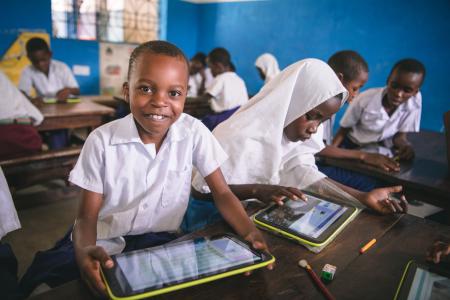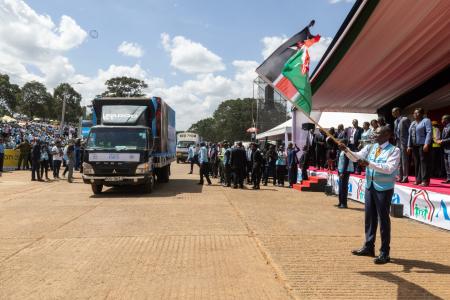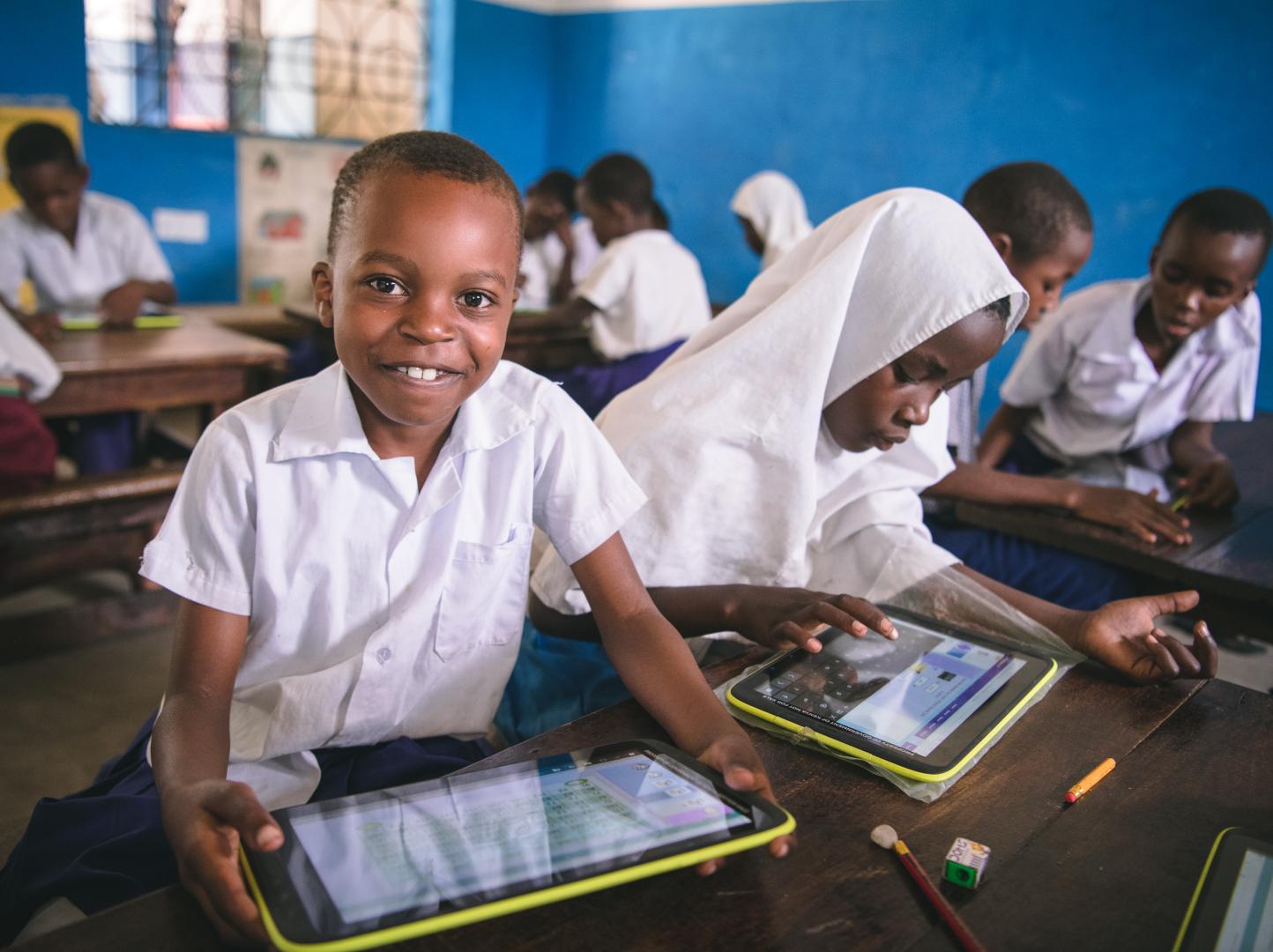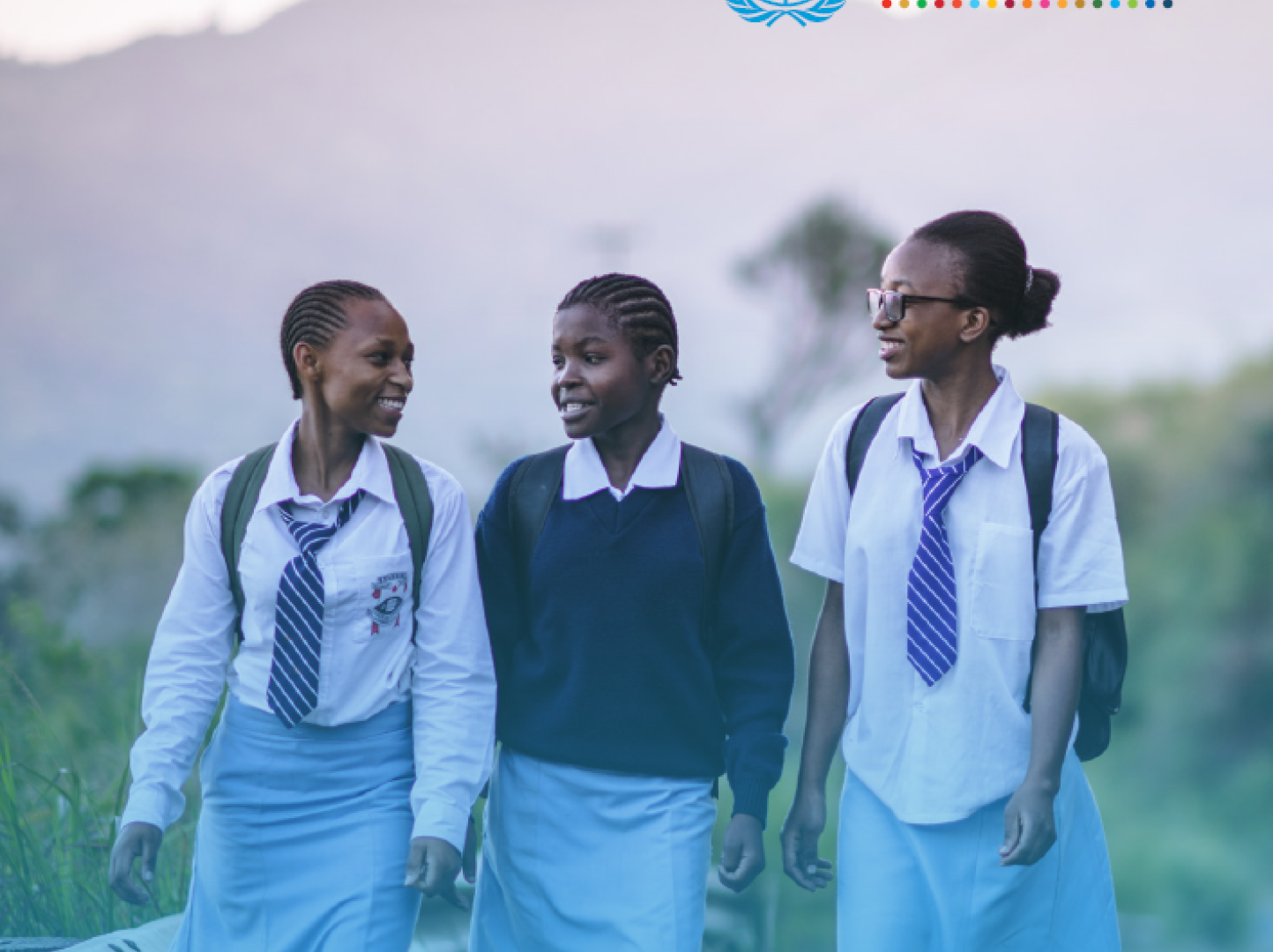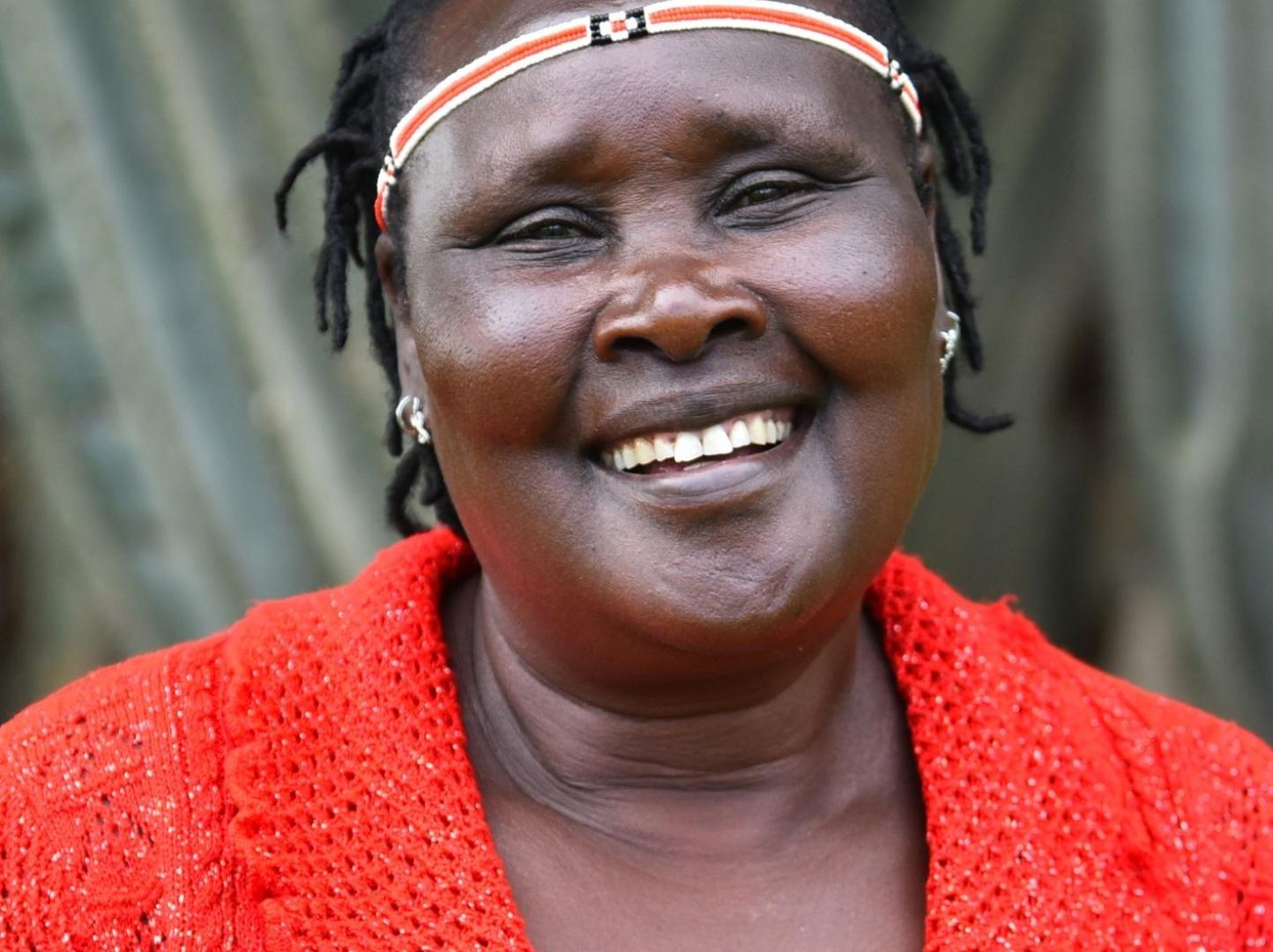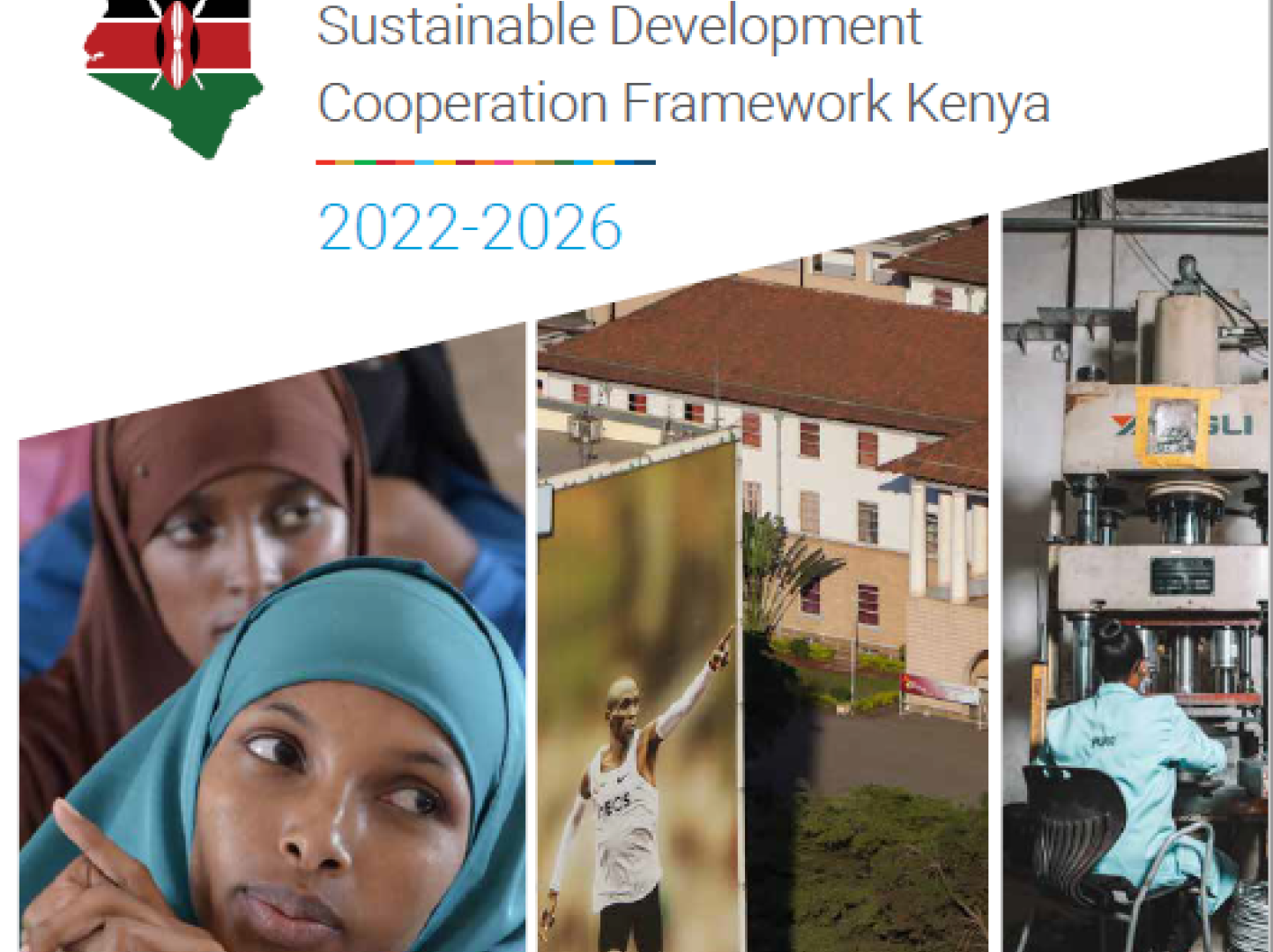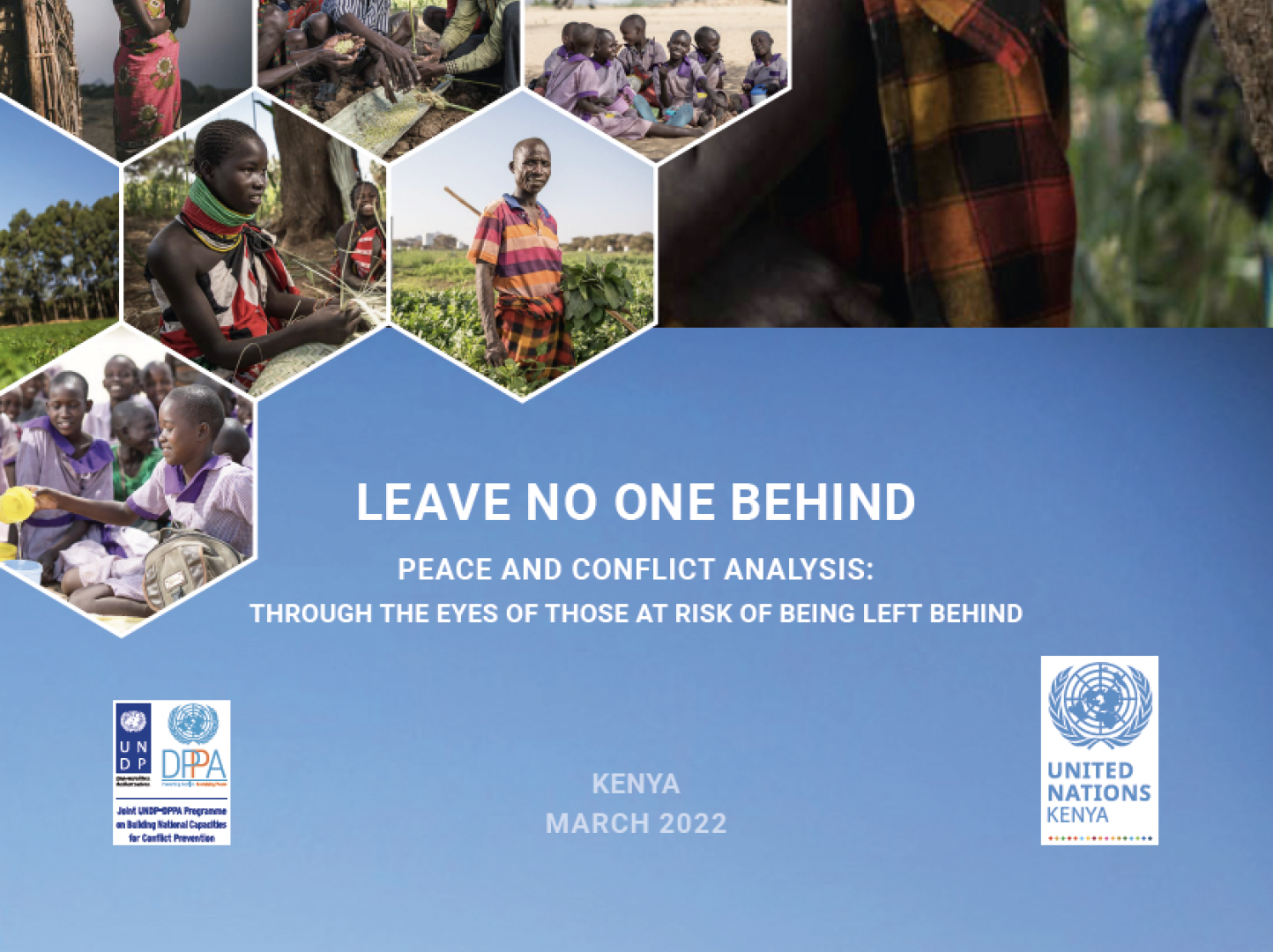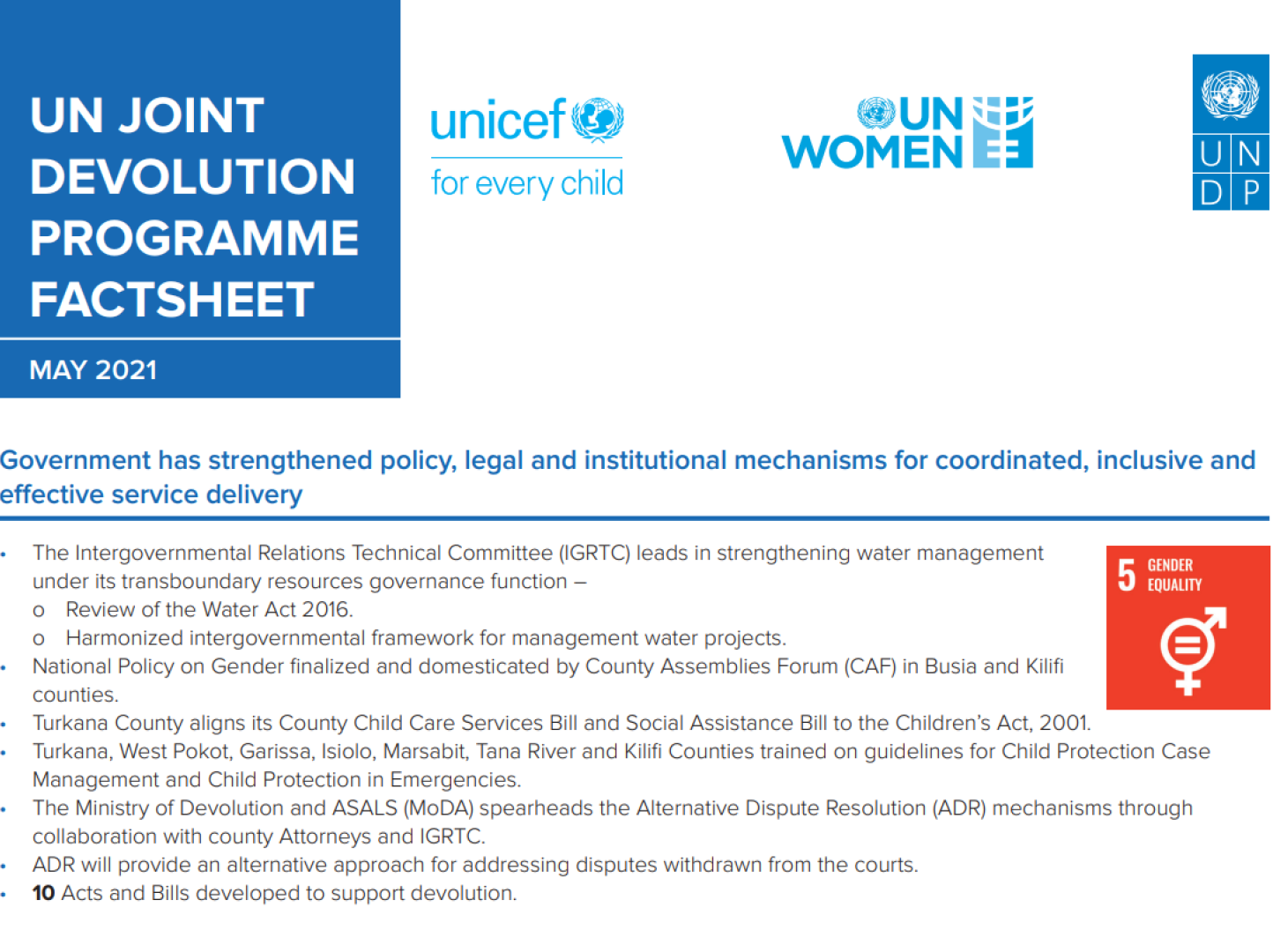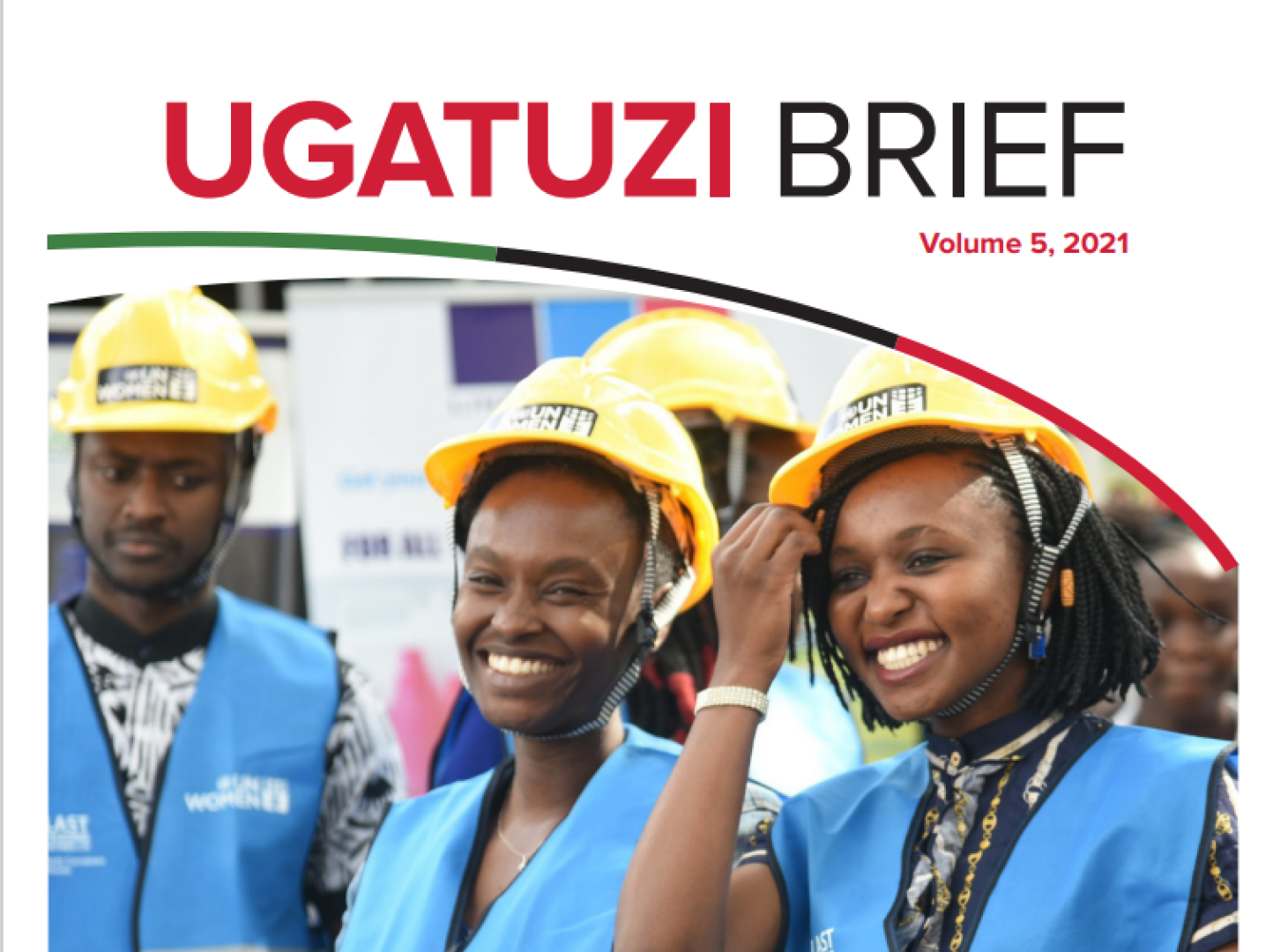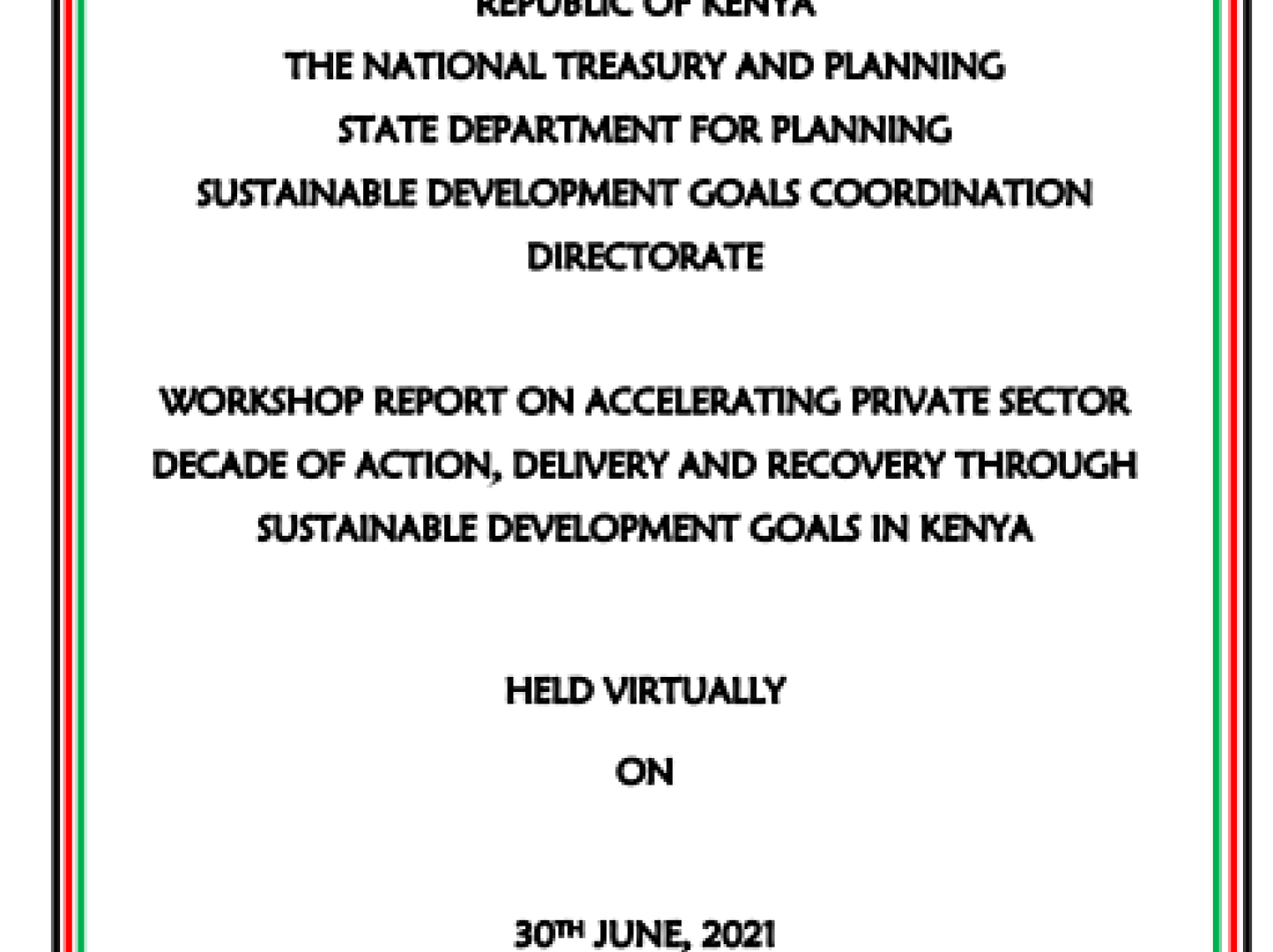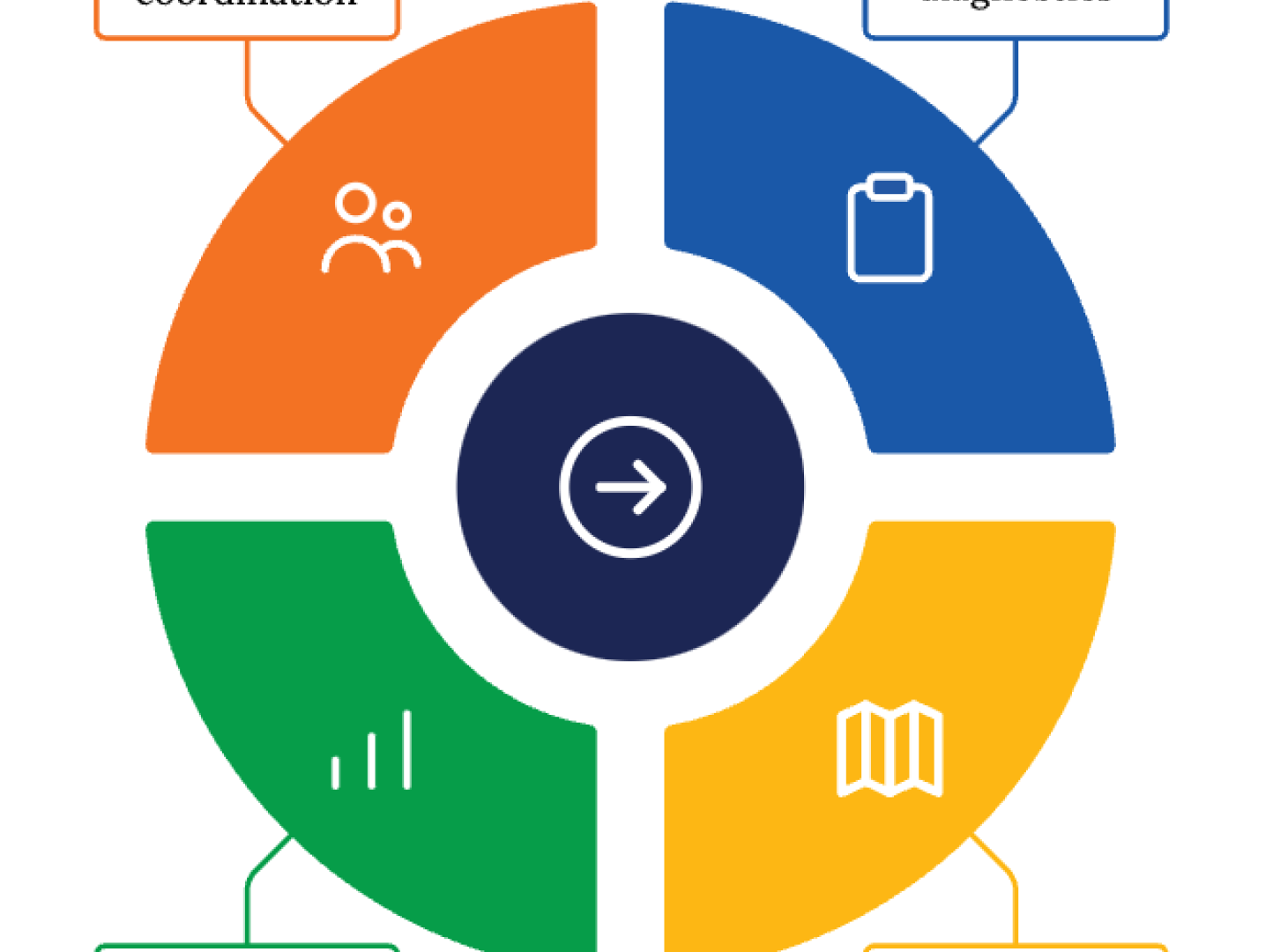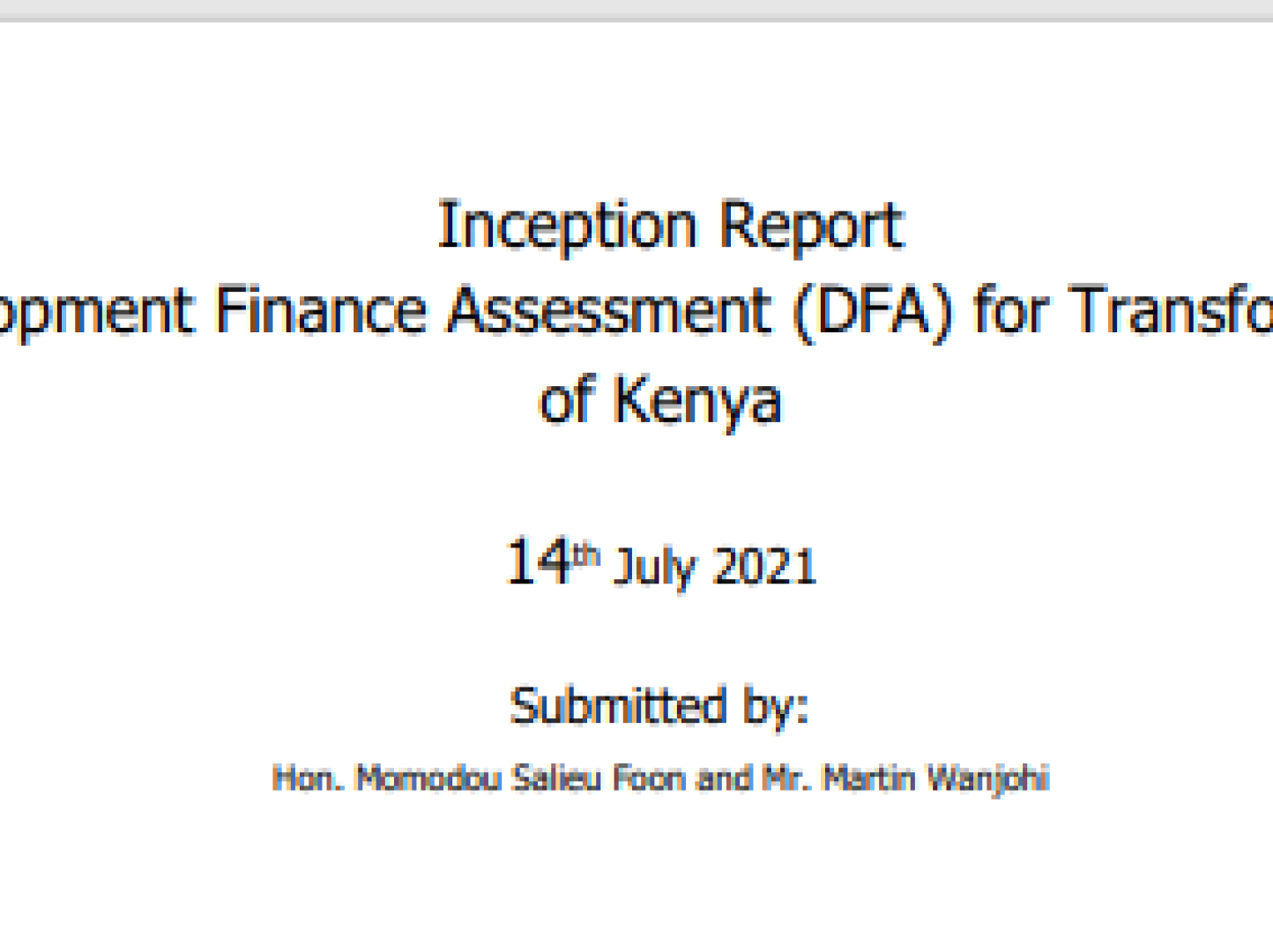Latest
Story
18 June 2025
Efficiency in Action: UN Kenya Shares Progress One Year Into Common Back Office Operations
Learn more
Story
06 May 2025
Nairobi Hosts Regional Food Systems Dialogue Ahead of UNFSS+4
Learn more
Story
05 May 2025
Feeding Futures: Why Food Systems Transformation Matters
Learn more
Latest
The Sustainable Development Goals in Kenya
The Sustainable Development Goals are a global call to action to end poverty, protect the earth’s environment and climate, and ensure that people everywhere can enjoy peace and prosperity. These are the goals the UN is working on in Kenya:
Take Action
19 September 2021
Donate to the SDGs - Keeping the Promise
We are putting the power to achieve the SDGs in the hands of everybody around the world who want to create a better future. The United Nations Joint SDG Fund is the world’s first and only investment vehicle to enable SDG financing to “building forward better.”
1 of 3
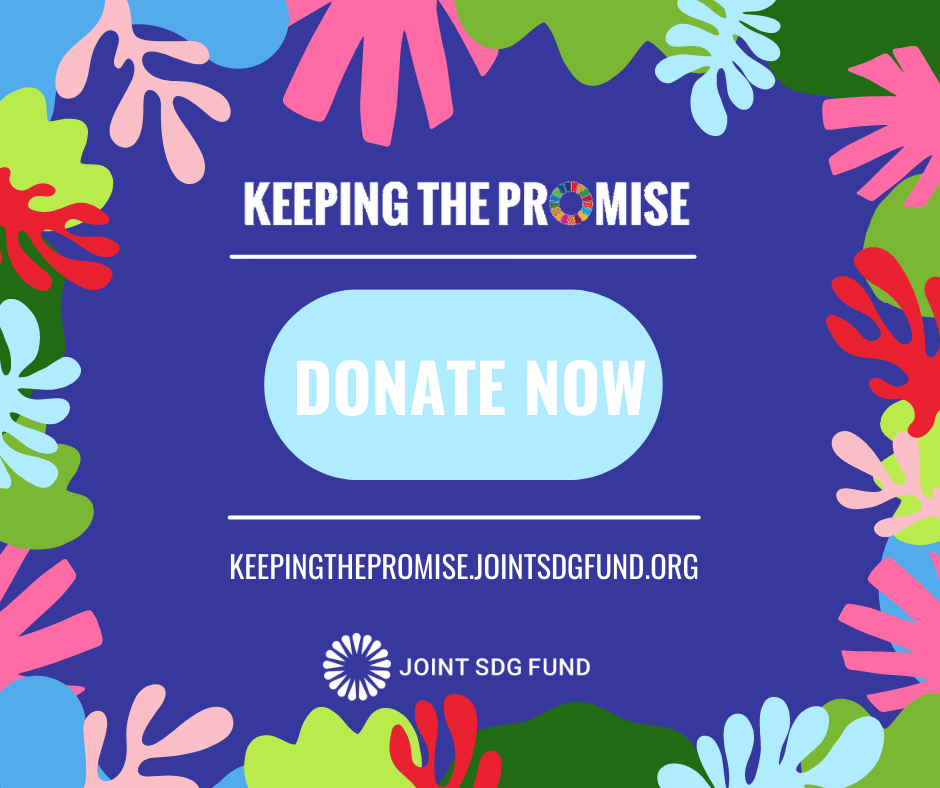
Take Action
18 September 2021
Donate to the SDGs
The United Nations Joint SDG Fund is the world’s first and only investment vehicle to enable SDG financing across the entire UN system committed to “building forward better.”
1 of 3
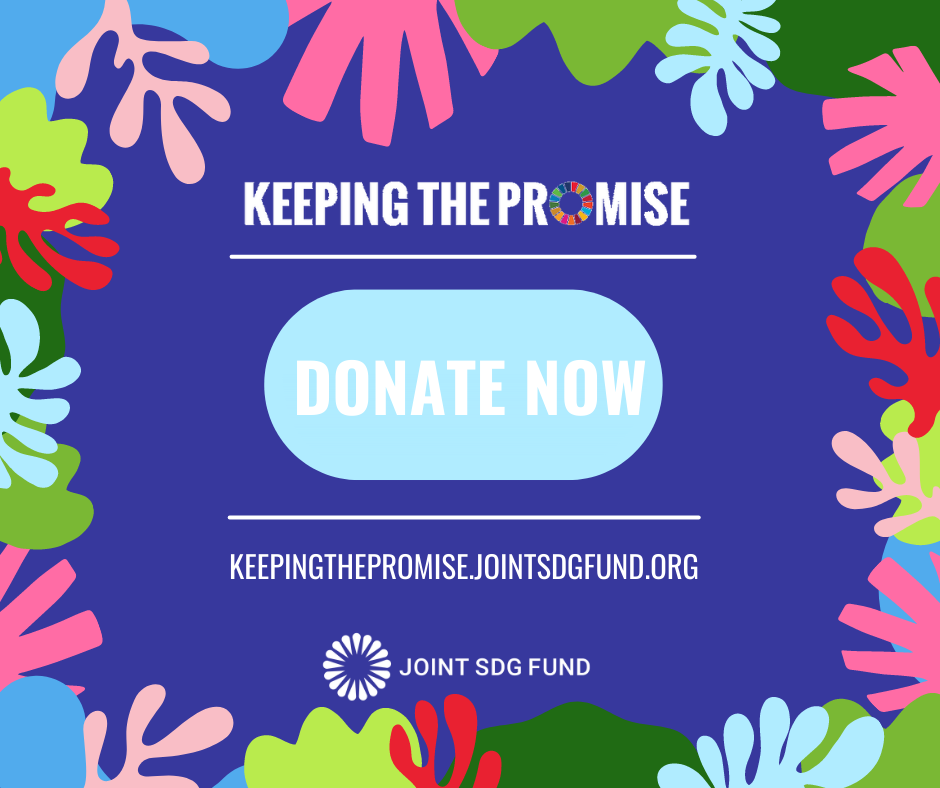
Story
01 February 2021
UNDP Kenya and Ministry of Health Launch Smart Robots to Prevent the Spread COVID-19
The United Nations Development Programme (UNDP) in collaboration with Ministry of Health has launched the piloting of smart anti-epidemic robotic solutions to aid the health response and management of the COVID-19 pandemic in Kenya. As the world contends with the impact of COVID-19 – a highly infectious virus – frontline healthcare workers remain highly vulnerable due to exposure to the virus's transmission. The deployment of the smart anti-epidemic robotic solutions, funded by the Government of Japan, will play an essential role in protecting frontline healthcare workers by limiting direct human-contact with patients. The robots will further support preventive measures and enhance public awareness of COVID-19 preventive measures and generate real-time statistics reports.
Speaking at the launch event, the Cabinet Secretary Ministry of Health Hon. Mutahi Kagwe noted that: Digitization is one of the strategies used to combat the pandemic which has proven highly infectious. With this realization, the Government is partnering with UNDP and the Government of Japan, to utilise technology in the COVID-19 health response. The Robotic technology to be deployed at Kenyatta National Hospital and Jomo Kenyatta International Airport will go further in assisting our healthcare in managing the disease."
Compelling evidence has shown that the use of technology can accelerate the development of COVID-19 diagnostics, therapeutics and vaccines. Digital innovations can also strengthen the health and community systems needed to deliver diagnostics, therapeutics and vaccines to people in need. The integration of the robots into Kenya’s healthcare system, will enhance the control of infections, prevent transmissions and support the storage of big data to inform decision making, and preparedness, ultimately contributing to the flattening of the infection curve.
“The piloting of the smart anti-epidemic robotic solutions is by no means a replacement of the crucial role played by our healthcare workers. Based on lessons from global and regional experiences where UNDP has successfully supported similar initiatives (Rwanda, Equatorial Guinea and India) we hope the introduction of the robotics in Kenya will uncover insights on leveraging technology within the healthcare system. Through an experimental lens, as a long-term investment, we hope to test the impact and effectiveness of robotics in the healthcare and a potential scaled up adoption of similar technologies across more public health facilities. We are keen to leverage this technology to provide an opportunity for the youth in Kenya to gain 4IR skills and hopefully open more employment and entrepreneurship opportunities” said Walid Badawi, Resident Representative, UNDP Kenya.
The robotic solutions designed in Belgium and distributed by Zorabots Africa was procured as part of UNDP’s broader support that aims to strengthen Kenya’s COVID-19 response at national and county levels, through an inclusive and multisectoral approach which includes addressing its Socio-Economic Impact. The Government of Japan has provided UNDP in Kenya with funding worth USD 2 million as part of UNDP’s global support to COVID 19 Response, which Kenya is among 60 beneficiary countries.
“Improvement healthcare is one of Kenya's policy priorities. And so, the support to this sector with such advanced technology as we are handing over today will no doubt contribute to the great effort currently underway to control COVID-19 in Kenya successfully. I can assure you that Japan will continue to collaborate with Kenya not only in the Health Sector but also in various fields to support the BIG-4 Agenda and thus maintaining our good relationship.” H.E. Ryoichi Horie, Japan Ambassador to Kenya.
Besides the smart anti-epidemic robotic solutions, valued at USD 320,000; UNDP also handed over 2 Medical waste microwaves valued at USD 400,000 for Migori and Siaya Counties - these have already been delivered to the hospitals and are currently being installed; PPEs valued at over USD 200,000 to complement further our contribution to partner institutions for the continuity of business in the national response; and, Testing kits valued at over USD 230,000.
###
Notes for the editors:
In line with the Secretary-General's mandate for UNDP, as the technical lead on socio-economic response and recovery, UNDP is working closely with the U.N. Resident Coordinator and the U.N. Country Team in Kenya to respond to the Government's requests for socio-economic assessments, support and implementation of the national COVID-19 response and recovery plans. UNDP has put its assets at the disposal of the U.N. system to facilitate a response that builds on the expertise of the entirety of the U.N. System, and provides the integrated policy advice and implementation support required in a development emergency setting. So far, UNDP in Kenya has mobilized over USD 7 million in support of COVID-19 response efforts. The funds have been used to support, among others: Technical leadership support in the drafting and implementation of the UN COVID-19 Socio-economic Response Plan, technical and financial support towards the Government of Kenya national Economic Recovery Strategy led by National Treasury and Planning and the County COVID-19 Social-Economic Reengineering and Recovery Strategy led by the Council of Governors The deployment of 50 U.N. Volunteer frontline health workers to increase response capacity in 14 counties placed in hospitals and medical facilities to counties most in need under our U.N. Joint Devolution Programme implemented in collaboration with our sister agencies UNWOMEN and UNICEF - in partnership with the Ministry of Devolution and ASALs; Procurement of personal protective equipment (PPEs) in support of various government institutions to support business continuity including MoH, EACC, Council of Governors, Ministry of Environment and Forestry amongst others with a focus on buying Kenya and build Kenya also to foster local economic revitalization; Provision of medical waste disposal equipment to facilitate safe management of waste in 13 health facilities across the four counties we are working with under our Global Environment Facility (GEF) support programme in collaboration with the Ministry of Environment and Forestry Raising awareness, factual information and communication on COVID-19 – including addressing gender-based violence and access to justice through our partnership and collaboration with civil society organizations, the County Assemblies Forum, and County Governments Surfacing and supporting innovations from brilliant Kenyan youth that with the right support can hold the keys to doing development differently and building forward better through the Great COVID Innovation Challenge.
In line with the Secretary-General's mandate for UNDP, as the technical lead on socio-economic response and recovery, UNDP is working closely with the U.N. Resident Coordinator and the U.N. Country Team in Kenya to respond to the Government's requests for socio-economic assessments, support and implementation of the national COVID-19 response and recovery plans. UNDP has put its assets at the disposal of the U.N. system to facilitate a response that builds on the expertise of the entirety of the U.N. System, and provides the integrated policy advice and implementation support required in a development emergency setting. So far, UNDP in Kenya has mobilized over USD 7 million in support of COVID-19 response efforts. The funds have been used to support, among others: Technical leadership support in the drafting and implementation of the UN COVID-19 Socio-economic Response Plan, technical and financial support towards the Government of Kenya national Economic Recovery Strategy led by National Treasury and Planning and the County COVID-19 Social-Economic Reengineering and Recovery Strategy led by the Council of Governors The deployment of 50 U.N. Volunteer frontline health workers to increase response capacity in 14 counties placed in hospitals and medical facilities to counties most in need under our U.N. Joint Devolution Programme implemented in collaboration with our sister agencies UNWOMEN and UNICEF - in partnership with the Ministry of Devolution and ASALs; Procurement of personal protective equipment (PPEs) in support of various government institutions to support business continuity including MoH, EACC, Council of Governors, Ministry of Environment and Forestry amongst others with a focus on buying Kenya and build Kenya also to foster local economic revitalization; Provision of medical waste disposal equipment to facilitate safe management of waste in 13 health facilities across the four counties we are working with under our Global Environment Facility (GEF) support programme in collaboration with the Ministry of Environment and Forestry Raising awareness, factual information and communication on COVID-19 – including addressing gender-based violence and access to justice through our partnership and collaboration with civil society organizations, the County Assemblies Forum, and County Governments Surfacing and supporting innovations from brilliant Kenyan youth that with the right support can hold the keys to doing development differently and building forward better through the Great COVID Innovation Challenge.
1 of 3
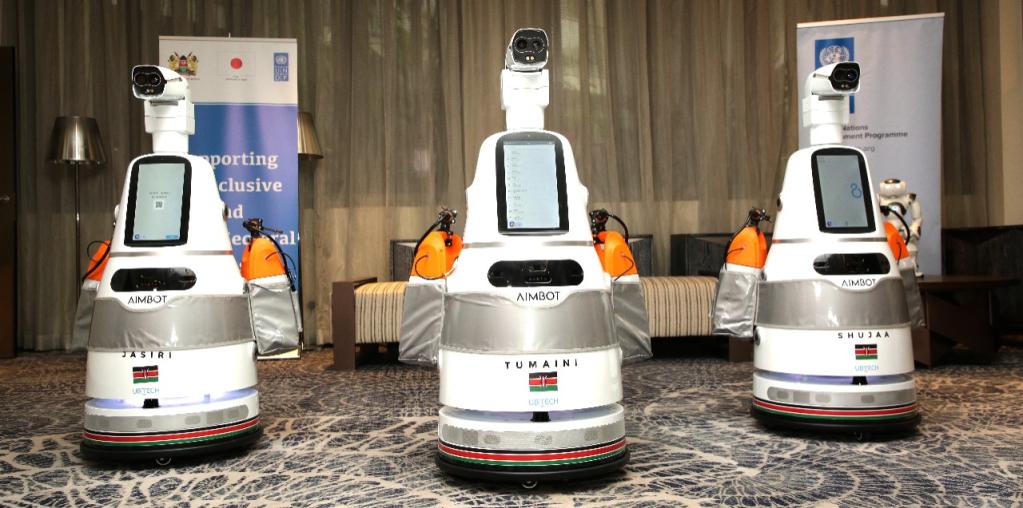
Story
18 June 2025
Efficiency in Action: UN Kenya Shares Progress One Year Into Common Back Office Operations
United Nations in Kenya has released its first annual Kenya Common Back Office (KCBO) Efficiency Report, offering an in-depth look at how shared operational services are transforming the way the UN delivers results across the country.The report captures the evolution of the KCBO over its first full year of implementation, spotlighting the scale of collaboration, service uptake and innovation achieved by 80 UN entities working in and from Kenya.“Our newly launched Kenya CBO Efficiency Report is a testament to the 80 UN Entities operating from Nairobi and their joint hard work as pioneers in advancing the Secretary-General’s Efficiency Agenda—an agenda that has only grown more vital in the context of UN@80—and it underscores how our collective efforts are not only transforming operations to bring further efficiency and innovation but also driving meaningful contributions to the Sustainable Development Goals across Kenya” Dr Stephen Jackson, UN Resident Coordinator in Kenya. A Year of Tangible GainsSince its operational rollout in January 2024, the Kenya CBO has delivered over 98,000 service requests, representing both legacy services and new offerings across HR, procurement, ICT, logistics and finance. With 100% participation of all UN entities in Kenya now confirmed through Service Level Agreements, the system is fully embedded and functioning at scale.While efficiency gains vary by agency, early indicators show encouraging results. The Food and Agriculture Organization (FAO) reported the equivalent of two full-time roles in workload savings and UNICEF recorded USD 8,000 in cost efficiencies due to streamlined billing mechanisms.The introduction of recruitment rosters, with over 722 vetted candidates across 65 job profiles, has significantly reduced time and effort for hiring across the UN system in Kenya. Investment from UNON alone in personnel, digital infrastructure and workspace totalled over USD 1 million, underlining a strong commitment to long-term transformation. Contributions Beyond the Back OfficeKCBO's impact extends beyond operations. Its services have contributed to 13 Sustainable Development Goals, including improved health and well-being (SDG3), gender equality (SDG5), climate action (SDG13) and responsible consumption (SDG12). Environmental initiatives include solar-powered buildings and waste reduction efforts at the UN Gigiri Complex, aiming for full energy neutrality within a decade.Joint Medical Services, gender-inclusive HR facilities and SDG-linked procurement protocols are just a few ways the KCBO is helping embed sustainability and inclusivity in UN operations. Innovation and Client FocusThe KCBO model places strong emphasis on innovation and user experience. The Kenya Service Hub, developed by UNON in collaboration with ESCAP, serves as a one-stop digital gateway for accessing services across UNON, UNICEF and WFP. Real-time KPI dashboards, an improved billing centre and Inspira extensions for local recruitment are among the tools enhancing transparency and performance tracking.Regular client feedback through workshops, surveys and digital platforms has helped shape continuous improvements, with satisfaction levels reaching over 93% for key service areas like ICT and facilities management. Eyes on the FutureLooking ahead, the KCBO team is prioritising better communication strategies, expanded digital engagement and refined costing mechanisms to ensure affordability and accessibility of services. Plans are underway to relocate most CBO service units into newly configured spaces in Gigiri, further enhancing the “one-stop shop” experience.In a time of global financial pressure and growing demands on the UN system, the KCBO shows that efficiency and impact can go hand in hand—when backed by leadership, innovation and collective resolve.Explore the full 2024 Kenya CBO Efficiency Report here.
1 of 5
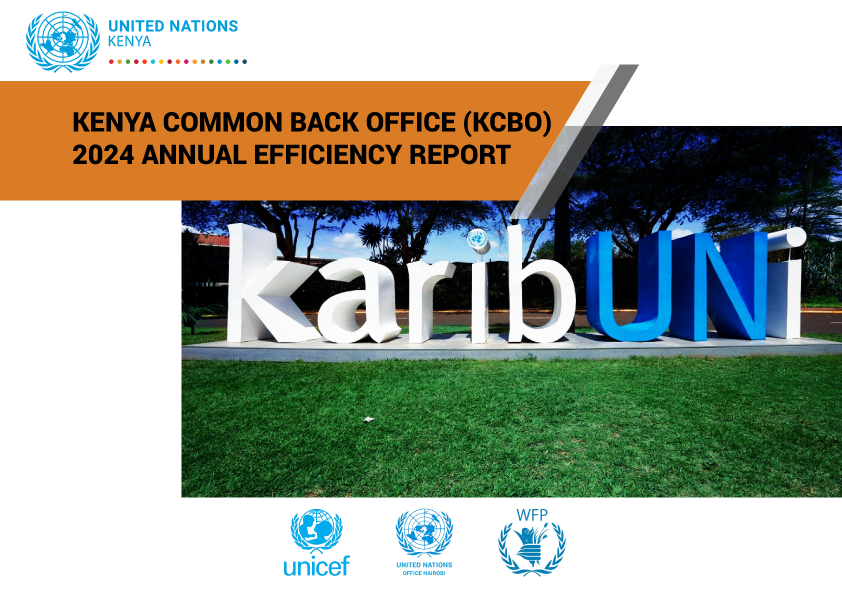
Story
06 May 2025
Nairobi Hosts Regional Food Systems Dialogue Ahead of UNFSS+4
As food insecurity, climate shocks and economic disruptions continue to challenge lives and livelihoods across the continent, stakeholders are regrouping, realigning and reimagining how Africa’s food systems can deliver for its people and the planet. This week in Nairobi, leaders, farmers, experts and UN partners are convening to shape a unified African position ahead of the UN Food Systems Summit+4 (UNFSS+4) in Addis Ababa later this year.Hosted by the Government of Kenya in partnership with the UN Food Systems Coordination Hub, the Africa Regional Preparatory Meeting is more than a technical forum—it is a moment of strategic reflection, collective learning and policy ambition to drive food systems that are resilient, equitable and locally rooted.“This isn’t about policy papers. It’s about whether we eat or go hungry,” said Cabinet Secretary for Agriculture and Livestock Development, Hon. Mutahi Kagwe, during the opening session. “Africa cannot keep importing what it can grow. Transforming food systems is not a luxury—it’s survival.”“Africa cannot keep importing what it can grow. Transforming food systems is not a luxury—it’s survival.”The Nairobi meeting marks the fifth and final regional preparatory dialogue ahead of the UNFSS+4, which will be co-hosted by Ethiopia and Italy in Addis Ababa from 27–29 July 2025. These meetings build on the 2021 Summit and provide countries with space to assess progress, exchange experiences and scale up bold, locally driven commitments.UN Resident Coordinator Dr Stephen Jackson emphasised Africa’s centrality in global food systems: “Africa holds two-thirds of the world’s remaining uncultivated arable land. If we are to ensure global food security sustainably, Africa quite literally holds the key. The world must listen, invest and partner.”He called for a shift away from piecemeal interventions toward systems thinking that connects each part of the food value chain.
“To fix food systems, start at the seed and follow every link to the plate,” said Dr Jackson. “From planting and harvesting to aggregation and clean cooking—every step must work for the farmer and for the future.”A key highlight was Kenya’s commitment to scale up school feeding, targeting 10 million children daily by 2030, up from 2.7 million today.“I was a school meal kid in the 60s,” said CS Kagwe. “Now we want to feed 10 million children—not with imports but with food from our own farms. That’s transformation.”He outlined how Kenya is already laying the foundation—having digitally registered 6.5 million farmers, trained and deployed 7,000 agri-entrepreneurs and integrated local production into its national nutrition systems.“We want farmers to make money not just survive. We want youth in agritech not jobless. We want school meals sourced from Kenyan soil. That’s how food systems deliver dignity, health and opportunity,” CS Kagwe added. Mr Stefanos Fotiou, Director of the UN Food Systems Coordination Hub, acknowledged both the progress and the urgency of addressing Africa’s food systems challenges.“One in five Africans faces hunger. Three out of four cannot afford a healthy diet,” he said. “Africa contributes just 3% of global greenhouse gas emissions yet it bears the worst climate impacts. That’s a systemic injustice.”He emphasised the need to invest in agro-processing, value chains, gender equity, youth innovation and climate-smart technologies, backed by policy alignment with the Malabo Declaration, Agenda 2063 and the African Continental Free Trade Area (AfCFTA).“African countries are not starting from scratch—we are standing on strong frameworks. Now is the time to align ambition with action,” Mr Fotiou added.As discussions continue through 7 May, Africa’s path toward the UNFSS+4 Summit in July is becoming clearer and stronger. What began as a technical agenda is emerging as a political declaration: Africa will no longer be spoken for. It will speak for itself and lead.“We must harvest the wisdom of this continent and go to Addis with one voice,” said Dr Jackson. “Africa is ready to lead on food systems transformation. Not just for itself but for the good of the world.”“Africa is ready to lead on food systems transformation. Not just for itself but for the good of the world.”The message from Nairobi is clear: Africa is not waiting. It is organising, innovating, investing and reshaping its food systems not only to feed itself but to nourish the world.
“To fix food systems, start at the seed and follow every link to the plate,” said Dr Jackson. “From planting and harvesting to aggregation and clean cooking—every step must work for the farmer and for the future.”A key highlight was Kenya’s commitment to scale up school feeding, targeting 10 million children daily by 2030, up from 2.7 million today.“I was a school meal kid in the 60s,” said CS Kagwe. “Now we want to feed 10 million children—not with imports but with food from our own farms. That’s transformation.”He outlined how Kenya is already laying the foundation—having digitally registered 6.5 million farmers, trained and deployed 7,000 agri-entrepreneurs and integrated local production into its national nutrition systems.“We want farmers to make money not just survive. We want youth in agritech not jobless. We want school meals sourced from Kenyan soil. That’s how food systems deliver dignity, health and opportunity,” CS Kagwe added. Mr Stefanos Fotiou, Director of the UN Food Systems Coordination Hub, acknowledged both the progress and the urgency of addressing Africa’s food systems challenges.“One in five Africans faces hunger. Three out of four cannot afford a healthy diet,” he said. “Africa contributes just 3% of global greenhouse gas emissions yet it bears the worst climate impacts. That’s a systemic injustice.”He emphasised the need to invest in agro-processing, value chains, gender equity, youth innovation and climate-smart technologies, backed by policy alignment with the Malabo Declaration, Agenda 2063 and the African Continental Free Trade Area (AfCFTA).“African countries are not starting from scratch—we are standing on strong frameworks. Now is the time to align ambition with action,” Mr Fotiou added.As discussions continue through 7 May, Africa’s path toward the UNFSS+4 Summit in July is becoming clearer and stronger. What began as a technical agenda is emerging as a political declaration: Africa will no longer be spoken for. It will speak for itself and lead.“We must harvest the wisdom of this continent and go to Addis with one voice,” said Dr Jackson. “Africa is ready to lead on food systems transformation. Not just for itself but for the good of the world.”“Africa is ready to lead on food systems transformation. Not just for itself but for the good of the world.”The message from Nairobi is clear: Africa is not waiting. It is organising, innovating, investing and reshaping its food systems not only to feed itself but to nourish the world.
1 of 5
Story
05 May 2025
Feeding Futures: Why Food Systems Transformation Matters
Ask any parent what a hot school lunch means for their child and you won’t hear policy lingo or development frameworks. You will hear words like hope, health and a chance to learn. Yet behind that simple life-changing meal is an entire food system at work—from the farmer who grew the food to the trader who supplied it to the cooks who prepared it to the driver that delivered it. That is why transforming our food systems matters. When food systems work well, health, education and everything else work better too. Food systems are not just about what we grow or eat. They are the interconnected web of how food is produced, stored, processed, distributed, accessed and consumed. Food systems are not just about what we grow or eat. They are the interconnected web of how food is produced, stored, processed, distributed, accessed and consumed. They touch nearly every part of life - essentially all the Sustainable Development Goals (SDGs). And when one part of the system breaks down, the ripple effects are wide. A drought affects crops which impacts prices and affects what families can afford, which in turn influences children’s nutrition, concentration in class and ultimately their future. Kenya has been a leader in recognising that food systems transformation is not a theoretical agenda—it is a practical necessity. Kenya’s national home-grown school feeding programme not only keeps over 1.5 million children (including children with disabilities) in school. It gives market opportunities to local farmers. It incentivizes the introduction of drought-resistant crop varieties and procurement systems that favour women and youth-led supply chains. The programme works with county governments on aggregating food from a variety of smallholder farmers for distribution to schools and with the private sector on providing cold storage, transportation, traceability and financing solutions. This systems-thinking is what gives children like ten-year-old Kamila Madey in Mandera County, who might otherwise have dropped out during Kenya’s prolonged drought, a real chance to stay in school and thrive. School do not only protect the vulnerable from climate shocks—they also offer a powerful lever to shape broader systems. Kitchens that feed millions daily are becoming testing grounds for cleaner cooking technologies such as the high-capacity steam cookers used in Nairobi’s Dishi na County, a programme where the county has partnered with Food for Education, an amazing social enterprise fast transforming school feeding in Africa. As these programmes scale up toward universal coverage in Kenya by 2030, they present an opportunity to reshape how food is sourced, cooked and consumed. Shifting to locally grown drought-tolerant crops like sorghum and millet nourishes children, strengthens local economies and reduces Kenya’s reliance on food imports. When schools become predictable markets for smallholder produce, they trigger demand for sustainable and climate-friendly agricultural practices—from regenerative farming to agroforestry. These are some of the ways in which school meals—often seen as a social safety net—are becoming a fulcrum of food systems transformation. They are creating jobs, advancing food sovereignty and helping tackle the triple planetary crisis of climate change, biodiversity loss and pollution. The conclusion to be drawn from such efforts is that no single ministry, agency or organisation can transform food systems alone. It requires coordination across sectors and strong national leadership. United Nations Kenya is proud to support this journey—through joint programmes anchored on evidence generation, technical support and convening spaces that bring government, civil society, private sector and development partners together. Later this year, the UN Food Systems Stocktaking Moment (UNFSS+4) offers a critical opportunity for Kenya and its neighbours to take stock of what has worked, what needs to be scaled up and where deeper investment is needed. And on Monday, Kenya proudly hosts the Africa Regional Preparatory Meeting for the Stocktaking. This is the moment to shift from intent to impact. Because the truth is simple: when we transform food systems we fix much more than hunger. We improve education, health, gender equality, rural incomes and climate resilience. Food systems transformation is a foundation. And it begins with how we think, plan and act across the entire food journey—from soil to plate and from policy to people. Commentary by Dr Stephen Jackson, United Nations Resident Coordinator in Kenya, ahead of the UN Food Systems Summit +4 Stocktake (UNFSS+4) Africa Regional Preparatory Meeting hosted in Nairobi.
1 of 5
Story
28 March 2025
UN Kenya 2024 Annual Results Report
The year 2024 has, in many ways, been a defining one for Kenya – a year of high ambition, continued development progress and strong regional and global leadership amidst complex crises. The United Nations in Kenya is proud to have stood shoulder to shoulder with the Government and people of Kenya through the year’s challenges and triumphs, delivering impactful and inclusive results, particularly for those most at risk of being left behind.This Annual Report captures what we, as the UN family in Kenya, have achieved together – from scaling up digital cash-based support to vulnerable households, to pioneering innovative models such as the Development Impact Bond that has empowered adolescent girls with access to critical health services. It also reflects the serious tests faced – from climate emergencies to calls for deeper youth inclusion – and how together, we responded.In 2024, we marked 60 years of Kenya’s membership in the United Nations – a proud milestone in the country’s enduring diplomatic journey, rooted in the values of peace, justice, and multilateral cooperation. Looking ahead, we remain steadfast in our commitment to accelerate progress towards the Sustainable Development Goals through strengthened partnerships and innovative financing. As we look ahead to 2025 and the 80th anniversary of the United Nations' founding, we do so with renewed determination to support Kenya’s bold aspirations and accelerate progress toward the Sustainable Development Goals. “As we move into 2025, we carry lessons with us for a very rapidly changing world. For UN Kenya, to continue accelerating Kenya’s drive for the SDGs, we have to speed up our own shift from aid funding to sustainable financing of development.”
— Dr Stephen Jackson, UN Resident Coordinator, KenyaExplore the full report to see how UN Kenya is building a more equitable, sustainable future—together.
— Dr Stephen Jackson, UN Resident Coordinator, KenyaExplore the full report to see how UN Kenya is building a more equitable, sustainable future—together.
1 of 5

Story
17 February 2025
UN-Supported Green Bond Initiative to Transform Africa’s Rice Sector
The United Nations, through its SDG partnership Platform in Kenya in partnership with private and philanthropic organisations, is supporting a Swiss initiative aimed at revolutionising rice production in Africa through the issuance of a Green Bond. The proposed financial instrument is designed to enhance sustainability, mitigate climate change effects, and increase market efficiency in the rice value chain.Rice, a staple food in sub-Saharan Africa, is experiencing an annual demand growth of over 6% due to population expansion and changing consumer preferences. However, local production meets only 60% of this demand, with the deficit filled by imports costing more than $6 billion annually. The sector faces numerous challenges, including inefficient financing, outdated farming practices, and significant environmental concerns such as methane emissions from flooded rice fields and excessive chemical use. The Green Rice Bond, designed by iGravity and Helvetas, with financial support from the SDG Impact Finance Initiative, seeks to bridge these gaps by providing structured debt financing and technical assistance. The bond’s proceeds will be channeled to financial institutions active in lending to businesses in the rice value chain as well as directly to intermediaries (such as rice millers), which will support smallholder farmers and cooperatives to transition to climate-smart agricultural practices. “This is an opportunity to move from reliance on grants to sustainable financing mechanisms,” said Arif Neky, Senior Advisor for UN Strategic Partnerships at the Resident Coordinator’s Office and the Founding Coordinator of the SDG Partnership Platform in Kenya. “We need to shift from boutique grant funded projects that fizzle out once the grant funding stops, to scalable, long-term sustainable investments,” he added. “This is an opportunity to move from reliance on grants to sustainable financing mechanisms,”
Arif Neky, Senior Advisor The bond aims to empower smallholder farmers, who form the backbone of rice production in Africa. By improving access to financing, it seeks to enable the adoption of more sustainable practices such as alternate wetting and drying (AWD), small-scale mechanisation, and better water management. The bond also promotes gender inclusiveness by prioritising women farmers, who represent a significant portion of the agricultural workforce.
“We see huge potential for improving rice production in Africa and ensuring food security while reducing its environmental footprint,” said Andreas Müller of Helvetas. “Through targeted financing and technical assistance, we can address inefficiencies in the value chain and promote sustainable practices”. The Green Rice Bond will be issued in tranches, with a planned, initial issuance of $10 million, and the ambition to scale to $50 million over the next 5 to 7 years. It will be structured as a blended finance model, attracting both concessional investors and private capital, while incorporating risk-sharing mechanisms to encourage financial institutions to participate. The technical assistance facility will provide tailored support to ensure effective utilisation of funds and knowledge transfer across stakeholders.
“The first issuance will serve as a proof of concept,” noted Morgane Loisel from iGravity. “If successful, it can be replicated across other agricultural value chains, strengthening food security and economic resilience across Africa”.The initiative aligns with global climate goals by promoting sustainable rice farming techniques that reduce methane emissions and support soil health. The approach also integrates circular economy principles, including the utilisation of by-products such as rice husks for biochar production.
With support from various stakeholders such as private investors, and development partners, the Green Rice Bond presents a pathway to a more resilient and self-sufficient rice sector, ensuring long-term benefits for farmers, consumers, and the environment.
Arif Neky, Senior Advisor The bond aims to empower smallholder farmers, who form the backbone of rice production in Africa. By improving access to financing, it seeks to enable the adoption of more sustainable practices such as alternate wetting and drying (AWD), small-scale mechanisation, and better water management. The bond also promotes gender inclusiveness by prioritising women farmers, who represent a significant portion of the agricultural workforce.
“We see huge potential for improving rice production in Africa and ensuring food security while reducing its environmental footprint,” said Andreas Müller of Helvetas. “Through targeted financing and technical assistance, we can address inefficiencies in the value chain and promote sustainable practices”. The Green Rice Bond will be issued in tranches, with a planned, initial issuance of $10 million, and the ambition to scale to $50 million over the next 5 to 7 years. It will be structured as a blended finance model, attracting both concessional investors and private capital, while incorporating risk-sharing mechanisms to encourage financial institutions to participate. The technical assistance facility will provide tailored support to ensure effective utilisation of funds and knowledge transfer across stakeholders.
“The first issuance will serve as a proof of concept,” noted Morgane Loisel from iGravity. “If successful, it can be replicated across other agricultural value chains, strengthening food security and economic resilience across Africa”.The initiative aligns with global climate goals by promoting sustainable rice farming techniques that reduce methane emissions and support soil health. The approach also integrates circular economy principles, including the utilisation of by-products such as rice husks for biochar production.
With support from various stakeholders such as private investors, and development partners, the Green Rice Bond presents a pathway to a more resilient and self-sufficient rice sector, ensuring long-term benefits for farmers, consumers, and the environment.
1 of 5
Press Release
15 February 2022
Kenya’s Adolescents the Winners as United Nations Joint SDG Fund Doubles its Portfolio to $114 Million in Catalytic Impact Investments
Selected from a global pool of submissions from over 100 countries, the proposals submitted by Kenya, Madagascar, North Macedonia, Suriname, and Zimbabwe emerged as the strongest, most impactful, and investment-ready to take public.
The investments constitute an ambitious and concerted response by the UN to the challenges of our generation: from health in a world still plagued by the COVID-19 pandemic to youth empowerment to climate change. Under the leadership of UN Resident Coordinators, implementation of these programmes will fuel the UN footprint in the five nations, ushering in a new generation of collaborative action across the UN, Governments, civil society, and private sector investors.
According to Dr. Stephen Jackson, the UN Resident Coordinator in Kenya,
“Vulnerable adolescent girls are amongst those at most risk of being left behind anywhere in the world. Our programme on Adolescent Sexual Reproductive Health will help Kenya reach vulnerable adolescent girls with Sexual and Reproductive Health (SRH) and HIV services to achieve gender equality and women’s and girls’ empowerment, reaching the furthest behind first. We’ll be helping Kenya blend public and private investment to push forward work in an area as delicate and sensitive as it is crucial to advancing Kenya’s youth”.
This announcement comes less than one year after the Fund launched its first investment of US $41 million in four transformative programmes in Fiji, Indonesia, Malawi, and Uruguay. In 2021, a US $17.9 million programme in Papua New Guinea was added, and with the addition of these five new programmes, the Joint SDG Fund’s Catalytic Investment portfolio will grow to US $114 million. The portfolio is expected to leverage US $5 billion toward the SDGs across the 10 programmatic countries.
In partnership with development banks and local financial institutions, Kenya’s newly created programme will support the scale up of the world’s first Adolescent Sexual and Reproductive Health (ASRH) development impact bond in Kenya that promises to not only transform adolescent health outcomes in Kenya but also open up endless opportunities for private and public investment, in public health.
Recognizing the immense support in the implementation of the UN joint programme initiatives, the JSDGF is exceedingly grateful for the level of cooperation from the dynamic inter-agency team in Kenya comprising of the SDG Partnership Platform Kenya at UNRCO, UNFPA, WHO, UNAIDS,CIFF, Triggerise and KOIS, as well as the Government of Kenya through the Ministry of Health, Council of Governors, participating county governments.
The Fund also marks its sincere appreciation for the contributions from the European Union and Governments of Denmark, Germany, Ireland, Luxembourg, Monaco, Kingdom of Netherlands, Norway, Portugal, Republic of Korea, Spain, Sweden, Swiss Agency for Development and Cooperation and our private sector funding partners, this milestone marks a transformative movement towards achieving the SDGs by 2030.
(United Nations Capital Development Fund, United Nations Development Programme, United Nations Children's Fund, United Nations Population Fund, International Labour Organization, World Food Programme, Food and Agriculture Organization, International Organization for Migration, United Nations Economic and Social Commission for Asia and the Pacific, International Fund for Agricultural Development, UNAIDS, United Nations Economic Commission for Europe, United Nations Environment Programme, United Nations Educational, Scientific and Cultural Organization, United Nations High Commissioner for Refugees, United Nations Industrial Development Organization, UN Women, World Health Organization and World Meteorological Organization.)
About: The UN Joint SDG Fund is a multi-partner trust fund established by the United Nations General Assembly. The Fund supports UN member states by de-risking investments that drive financing solutions to accelerate achievement of the Sustainable Development Goals (SDGs). Our goal is to disburse US$ 1 billion in grants annually in the race to 2030. All programmes share one critical element: their ability to leverage multi-million-dollar grants from the Joint SDG Fund into billions for sustainable development. Learn more: https://www.jointsdgfund.org/
1 of 5
Press Release
15 July 2021
FAO and Kenyan Government sign action plan to mitigate drought in ASALs Counties
15/07/2021 Nairobi - Kenya: The Food and Agriculture Organization of the United Nations (FAO) and the Ministry of Devolution and the Arid and Semi-Arid Lands (ASALs) today signed the Anticipatory Action and Response Plan for Pastoral and Agropastoral Communities in ASAL Counties of Samburu, Isiolo, Turkana, Garissa, Marsabit, Mandera, Wajir and Tana River.
This is in response to drought alert sent in June 2021 where 12 of the 23 ASAL counties were in the alert drought phase, while 16 reported a declining trend. This is an abnormal occurrence at the immediate end of the season.
‘Livelihood conditions have declined as a result of reduced access to pasture even as 56% of the ASAL counties reported increased trekking distances to water sources for livestock and domestic use. This is expected to get worse in the coming months hence the need for urgent anticipatory action,’ said Carla Mucavi - the FAOR Representative to Kenya during the signing.
‘The Government welcomes the support and collaboration of partners such as FAO in addressing this situation. This call for anticipatory action will go a long way in building the resilience of the communities in the affected Counties. Urgent action and a coordinated response is needed from donors and other concerned stakeholders before the situation deteriorates further,’ said the Cabinet Secretary for Ministry of Devolution and the Arid and Semi-Arid Lands (ASALs) Hon. Eugene Wamalwa.
The ASAL situation since 2020
The 2020 Short Rains Assessment established that the season had performed poorly. As of February 2021, 1.4 million people in ASAL counties were already experiencing acute food insecurity. This was aggravated by other factors including the COVID-19 pandemic, the desert locust invasion, food commodity price spikes, and livestock diseases.
Since then, the long rains in March-May 2021 have also under-performed. The onset of the season was late, the amount of rainfall was below normal in most ASAL counties, and its distribution in both space and time was poor.
Current drought indicators
An estimated two million people in ASAL counties are now in need of assistance. This figure is likely to rise as the situation worsens. There is a severe deficit of vegetation in Isiolo county and in Lagdera sub-county of Garissa, while the rest of Garissa and Kilifi, Marsabit, Tana River, and Wajir counties report a moderate vegetation deficit.
The proportion of children at risk of malnutrition is already above average in seven ASAL counties (Embu, Taita Taveta, Makueni, Narok, Kjiado, Meru, Nyeri). In addition to that, families are now forced to cover longer distances to access water for domestic and livestock use as water sources have dried up.
Resources needed for drought mitigation
Kenya’s drought response plan requires a total of Kshs. 9.4 billion for the period July – November 2021: Kshs. 5.8 billion for food and safety net support and Kshs. 3.6 billion for non-food interventions.
FAO is seeking a total of USD 15,007,460 (Ksh 1,500,746,000 billion) to cushion livestock assets and vulnerable pastoral households against the adverse effects of the drought, to support water interventions for increased access to water for Livestock and domestic used to enhance access to food and nutrition. This includes basic needs by farming households and to strengthen the institutional and technical capacity of National Drought Management Authority (NDMA) for effective implementation of the early warning mechanism.
1 of 5
Press Release
06 May 2021
Statement from the Executive Director of UNAIDS, Winnie Byanyima on the decision by the United States of America to support the TRIPS waiver for COVID-19 vaccines
5 May 2021 I applaud the announcement from United States Trade Representative Katherine Tai supporting the waiving of intellectual property protections for COVID-19 vaccines.
This is the kind of global leadership the world desperately needs as we witness horrific scenes in countries like India, where only nine in 100 people have been vaccinated. To date, more than 1.1 billion doses of vaccines have been administered globally, but more than 80% of those have been administered in high- and upper-middle-income countries, while just 0.3% have been administered in low-income countries.
We are in a race to vaccinate the majority of the world’s population to curb death tolls and before more potent variants of COVID-19 emerge, rendering current vaccines ineffective. The faster we can scale up global vaccine supply, the faster we can contain the virus and the less chance we will face a day when variants prove resistant to existing vaccines. As the United Nations Secretary-General, Antonio Guterres has said “no one is safe until everyone is safe”.
The TRIPS waiver would enable the sharing of technologies, data, know-how, patents and other intellectual property rights across the world. The announcement of the US administration sends a powerful signal to the rest of the G7 and to the
European Union to also support the World Trade Organization TRIPS Waiver and inspire other countries to take a powerful stand in favour of people before profits. This remarkable position from the US government is a fundamental step towards a People’s Vaccine.
To ensure everyone, everywhere has access to a lifesaving vaccine, we also need to see a pooling of technology through the World Health Organization’s COVID-19 Technology Access Pool, as well as financing to help build a network of vaccine manufacturing in developing countries. These three actions can together build a sustainable system to vaccinate the world, reach the needed herd immunity and open the paths to make the world best prepared for future pandemics.
As we have learned from 40 years of fighting AIDS, equitable access to medical technologies is critical both for saving lives and for decreasing the impact of infectious diseases on people, communities and nations.
We are grateful to President Biden and his Administration for the generous humanitarian pledges made on COVID-19 and for today’s announcement.
UNAIDS
The Joint United Nations Programme on HIV/AIDS (UNAIDS) leads and inspires the world to achieve its shared vision of zero new HIV infections, zero discrimination and zero AIDS-related deaths. UNAIDS unites the efforts of 11 UN organizations—UNHCR, UNICEF, WFP, UNDP, UNFPA, UNODC, UN Women, ILO, UNESCO, WHO and the World Bank—and works closely with global and national partners towards ending the AIDS epidemic by 2030 as part of the Sustainable Development Goals. Learn more at unaids.org and connect with us on Facebook, Twitter, Instagram and YouTube
1 of 5
Press Release
29 April 2021
Joint statement by the Government of Kenya and the United Nations High Commissioner for Refugees: Dadaab and Kakuma Refugee Camps Roadmap
President Uhuru Kenyatta met today with the UN High Commissioner for Refugees Filippo Grandi in Nairobi to discuss issues surrounding refugees and asylum seekers in the region, as well as receive a briefing on the status of Kakuma and Dadaab refugees camps, following the UN High Commissioner for Refugees’ meetings with Cabinet Secretaries Dr. Fred Matiang’i and Amb. Raychelle Omamo.
This meeting comes in the wake of the Government’s communicated intention to work toward the closure of the refugee camps in Kenya. A joint team comprising officials from the Government and the UN agency will therefore be formed to finalize and implement a roadmap on the next steps towards a humane management of refugees in both camps.
The roadmap, which was presented to the Government of Kenya in the beginning of April, includes voluntary return for refugees in safety and dignity, departures to third countries under various arrangements, and alternative stay options in Kenya for certain refugees from East African Community (EAC) countries.
“We are serious about completing the repatriation programme which we started in 2016, in full view of our international obligations and our domestic responsibility. We therefore reiterate our earlier position to close both Dadaab and Kakuma camps by 30 June, 2022,” said Cabinet Secretary Fred Matiang’i.
The Government of Kenya and UNHCR agree that refugee camps are not a long-term solution to forced displacement and are committed to working together to find alternative solutions that are in line with the responsibility sharing principles and goals of the Global Compact on Refugees (GCR).
“I believe that the Government and people of Kenya will continue to show their generous hospitality towards refugees as they have done for nearly three decades, while we carry on discussions on a strategy to find the most durable, appropriate and rights-based solutions for refugees and asylum-seekers residing in the refugee camps in Dadaab and Kakuma,” said the UN High Commissioner.
“Closure of the camps must be seen as an aspiration. We are not chasing people away, but a camp is not a permanent thing. It is a place of limbo. No one should live in a place of uncertainty or indignity generation after generation. What we are now working on is how to achieve this cooperatively which is in line with Global Compact on Refugees,” said Foreign Affairs Cabinet Secretary Amb. Raychelle Omamo.
High Commissioner Grandi welcomed the government’s continued commitment to the GCR during this process. “I am reassured by the government’s assurances that they will continue to provide protection and services for asylum-seekers and refugees in Kenya while various solutions are pursued.”
Among the precursory activities contained in the government’s roadmap is a unanimous resolution that was recently endorsed by ambassadors and representatives from East African countries which have a mutual diplomatic relationship with Kenya when they met a delegation led by Interior Cabinet Secretary, Dr. Fred Matiang’i.
“Refugees from East African countries will be given the option of being issued a work permit for free so that they can integrate into Kenyan communities or return to their country of origin,’’ said Dr. Matiang’i.
Digital verification of Kenyans currently also registered as refugees is set to begin in due course. This will inform the issuance of appropriate documentation to Kenyan citizens and ensure their removal from the refugee database.
Kenya has shouldered the burden of sheltering refugees for almost three decades, and the swelling camps have overstretched their capacity to host populations. The government has also expressed grave concerns over the security of both Kenyans and refugees at the camp.
There are currently 433,765 refugees living in Dadaab and Kakuma camps.
1 of 5
Press Release
05 February 2021
Country Level Food Systems Dialogues in Kenya
Building healthier, more sustainable, and equitable food systems are recognized as a powerful and essential requirement to deliver on all SDGs. The term “food system” refers to the constellation of activities involved in producing, processing, transporting, and consuming food. Food systems touch every aspect of human existence.
The health of our food systems profoundly affects the health of our bodies, as well as the health of our environment, our economies, and our cultures. When they function well, food systems have the power to bring us together as families, communities, and nations. But too many of the world’s food systems are fragile, unexamined, and vulnerable to collapse, as millions of people around the globe experienced first-hand during the COVID-19 crisis. When our food systems fail, the resulting disorder threatens our education, health and economy, as well as human rights, peace and security. As in so many cases, those who are already poor or marginalized are the most vulnerable. Some countries and regions face unique circumstances, which can increase their vulnerability.
In 2021, UN Secretary-General António Guterres will convene a Food Systems Summit as part of the Decade of Action to achieve the Sustainable Development Goals (SDGs) by 2030. With only 10 years remaining, many of the 17 SDGs remain far out of reach. In many cases, unsafe or unsustainable food systems are part of the problem. The UN Food Systems Summit will serve as a turning point in the world’s journey to achieve all the SDGs. We know what we need to do to get back on track: Scientists agree that transforming our food systems is among the most powerful ways to change course and realize the vision of the 2030 Agenda. Rebuilding the food systems of the world will also enable us to answer the UN Secretary-General’s call to “build back better” from COVID-19. We are all part of the food system, and so we all must come together to bring about the transformation that the world needs
The need is urgent, and our ambition is high. The UN Food Systems Summit will launch bold new actions, solutions and strategies to deliver progress on all 17 SDGs, each of which relies to some degree on healthier, more sustainable and equitable food systems.
The Summit will awaken the world to the fact that we all must work together to transform the way the world produces, consumes and thinks about food. “We believe in a world where healthy, sustainable and inclusive food systems allow people and planet to thrive. It is a world without poverty or hunger, a world of inclusive growth, environmental sustainability and social justice. It is a resilient world where no one is left behind.” Said AGNES KALIBATA, Special Envoy for the UN Food Systems Summit
1 of 5
Latest Resources
1 / 11
Resources
01 October 2021
1 / 11

